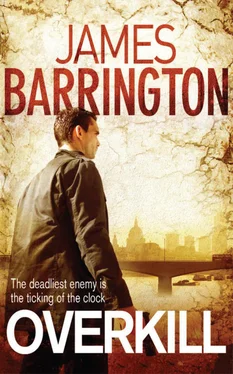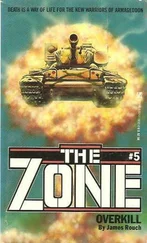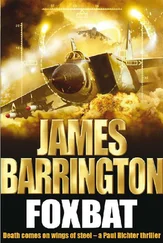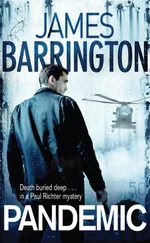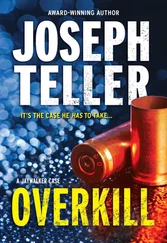‘So what are you saying? That America has been neutralized, and that the Russians are going to take Europe?’ Colonel Lacomte expressed it very well.
‘That’s it exactly,’ Richter said. ‘Russia wants neither a war with America nor a war in Europe. What it wants is Europe without a fight, and the whole purpose of this scheme is to achieve that.’
The room was silent again as his audience digested this. Finally, Tony Herron spoke. ‘But what about glasnost and the liberalization of the USSR? What about that?’
‘We believe that this plan is not, and never was, part of official Russian strategy. Piecing it together from what Orlov revealed, it looks as if the scheme was a strictly private venture, concocted by the SVR and the GRU, possibly under the auspices of Group Nord .’
‘Group Nord ?’ Lacomte asked.
‘Group Nord ,’ Richter replied, ‘was formed in the mid-1970s by Yuri Andropov when he was Chairman of the KGB. The Group’s members were the chiefs of all the KGB’s operational divisions and it met once a month. The declared object of Group Nord was to shatter the western alliance, isolate the United States of America, and so weaken or otherwise disable America that the country would no longer have the will to resist the Soviet Union. “Overkill” has all the hallmarks of a Group Nord operation.’
‘Just a moment.’ Colonel Lacomte was looking puzzled. ‘We seem to have missed the main point. You said that America had been neutralized. How?’
‘This information I have not had confirmed,’ Richter said, ‘mainly because the Americans either don’t know or won’t talk about it. However, according to the late Comrade Orlov, the Russians have spent the last four years carefully installing a selection of high-radiation conventional nuclear weapons in every major city in the United States.’ Tony Herron gave a gasp of astonishment. Richter carried on. ‘A thoroughly nasty idea. The Americans were spending billions on buying non-weapons-grade plutonium from the Russians, which was effectively a waste product they pulled out of their nuclear reactors, while the Russians were sending the plutonium the Americans thought they were getting to America, but inside live nuclear weapons. And you remember the communications satellite I mentioned – the one in geostationary orbit over the Atlantic?’ Lacomte nodded. ‘That’s the firing link. All the weapons have radio-controlled triggers, which the Russians can pull any time they want.’
‘How the hell did they get them into the States?’
‘A combination of smuggling and misuse of the Diplomatic Bag – it doesn’t have to be a briefcase carried by a Queen’s Messenger, you know. It can be anything from an envelope to an articulated lorry.’
Tony Herron spoke slowly. ‘I can see why they’re neither confirming nor denying it. But you said those were standard nuclear bombs. What about these high-yield neutron bombs? I thought that was what this was all about?’
‘It is,’ Richter replied. ‘The American weapons are only half of the story. The problem with taking Europe is that Britain and France have retained their own nuclear deterrent. That means that, even if America has been taken out of the equation, Russia could still suffer massive losses if her troops were to invade Western Europe. So the problem the SVR and GRU faced was to eliminate the British and French nuclear deterrents, but still not turn Europe into a nuclear wasteland. And for that, the strategic neutron bombs are tailor-made because of the high yield and very short-duration radiation. They could detonate a device under the Eiffel Tower and walk down what was left of the Bois de Boulogne five days later. You’d have to step over a lot of corpses, but you wouldn’t need to wear an NBCD suit or a mask.’
Colonel Lacomte shook his head. ‘This is unbelievable,’ he said.
‘It is,’ Richter agreed, ‘but it’s nevertheless true.’
‘Assuming for the moment that it is,’ Lacomte continued, ‘what can we do about it? And how far have the Russians got with the scheme?’
‘What we can do,’ Richter replied, picking up the ‘Overkill’ file, ‘is stop them delivering the last neutron bomb – which is destined for London – because that will stalemate the situation and keep the British independent nuclear deterrent as a counter-threat. And the reason it’s your problem as well as our problem is that, according to Orlov, the Paris, Toulouse, Nice and Bordeaux devices are already in place.’
Tuesday
French Ministry of the Interior, rue des Saussaies, Paris
The knock at the door sounded unnaturally loud in the silence that followed. Lacomte gestured to one of the DST men who walked over and opened it. He held a brief conversation with someone outside, then walked back and murmured to Lacomte. The colonel looked up at Richter and Herron, then spoke briefly to the DST officer, who immediately left the room. Lacomte smiled briefly. ‘We have some visitors,’ he said, ‘who may be able to corroborate some of what you are saying.’
‘Who?’ Herron asked, looking at Richter.
‘Two gentlemen from the American Central Intelligence Agency,’ Lacomte replied, as the door opened to admit John Westwood and Miles Turner.
Westwood stopped just inside the door as his eyes swept the room and then settled on Richter. ‘Paul?’ he said, his voice uncertain.
‘John Westwood,’ Richter said. ‘Long time no see. How the hell did you get here?’
Rozvadov, Czechoslovakia
The convoy came to a halt just west of the town of Rozvadov, about a mile short of the German border and at the end of the queue of vehicles waiting to cross. Most, Modin noted, were lorries, which probably meant delays while their loads or manifests were inspected and approved by the German Customs officers.
‘We cannot, I suppose,’ Bykov asked, ‘attempt to get across any quicker, because of our diplomatic status?’
Modin shook his head. ‘No,’ he said flatly, ‘not across the German border. Don’t forget, Viktor, the lorry is supposed to be carrying furniture and fittings for our London Embassy. It would be difficult to argue that these goods constitute any kind of a priority load. We wait, and we take our turn.’
French Ministry of the Interior, rue des Saussaies, Paris
‘Any questions on any of that?’ Richter asked.
‘No, not at the moment. Thank you for recapping,’ Westwood said. He and Turner had paled noticeably when Richter described the placement of the nuclear weapons in American cities. Richter’s second explanation had been much briefer than his first, and the Americans had already known at least some of the background data, which helped.
‘Would they have the ability to construct these devices – I mean the bombs back home and these new neutron devices – and get that satellite into orbit?’ Miles Turner asked.
‘Yes, without question,’ Richter said. ‘The GRU has an almost unlimited budget, and the SVR – like the KGB before it – is still the nation’s biggest single employer. We know they’d have the resources to do it. The Kremlin relies on the SVR, just as it used to rely on the KGB, to tell it what’s going on in the country. If the SVR doesn’t tell the Kremlin, the Kremlin probably won’t find out, because it’s got very few other sources of information. As long as this plot has been conceived at a high enough level it wouldn’t be too difficult to keep it quiet.
‘We believe that somebody – probably somebody in Group Nord – looked at Western Europe four or five years ago and saw the answers to all the problems of their nation. The fields of France could feed the world, if the political will existed to organize it. The German industrial machine could dominate the global economy, if it was given sufficient muscle. The resources were there; all that was necessary was to devise a plan to take them. We believe that the originator of this operation planned to annex most of Western Europe, incorporate it into an expanded Soviet bloc, and then continue with the age-old dream of Communist expansion throughout the world. They probably thought that by seizing Europe’s assets they could at last make the Communist system work, and demonstrate to the world that Lenin, Marx and all the rest of them had been right all along. We know better, of course. Given Communist management, or rather mismanagement, Germany would be a subsistence economy within five years, France in two.
Читать дальше
